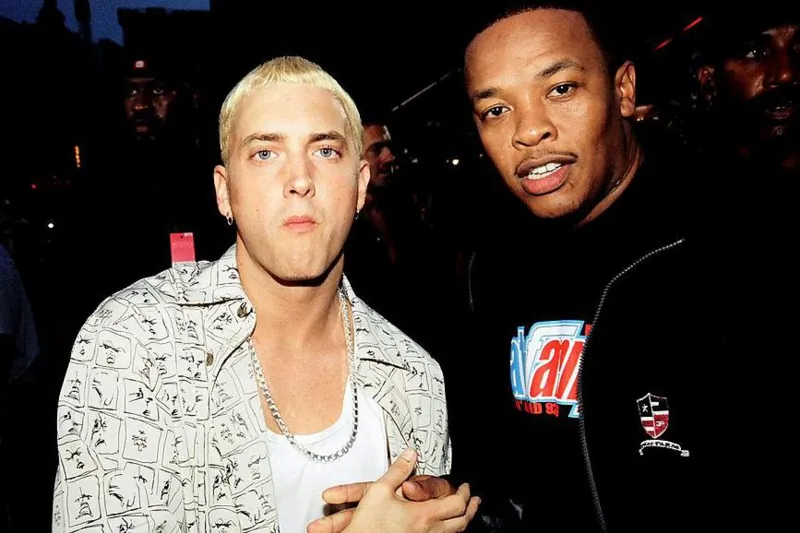
Marshall Mathers VS. Slim Shady
Twenty-five years after his entrance into the music world, Eminem‘s controversial alter ego, Slim Shady, may be taking his final bow. Known for his bleach-blond hair and casual attire, Slim Shady is a product of Eminem’s tough upbringing, which he has often described in terms of survival on the fringes of society.
In a recent revelation made through an ingeniously crafted mock murder news report, Eminem announced his upcoming album, “The Death of Slim Shady (Coup de Grâce),” set for a summer release. This Friday marked the return of his provocative persona in the album’s leading single, “Houdini,” which promises to stir the pot once more.

The track features a roster of notable figures, including Dr. Dre, Snoop Dogg, 50 Cent, and comedians Pete Davidson and Shane Gillis. It portrays Eminem confronting the notorious character he created, signaling a potentially dramatic conclusion to the Slim Shady saga. Eminem himself hinted at this inevitability, stating, “I knew it was only a matter of time.”
As Slim Shady ostensibly makes his last stand, it’s worth reflecting on his complex legacy. Eminem, born Marshall Mathers III, found solace in rap during his turbulent youth in Detroit’s challenging neighborhoods. His initial attempts to break into the music scene were overshadowed by the rise of Vanilla Ice, but Eminem’s street credibility set him apart, enabling him to navigate the “cultural debt” that white rap artists often face.
Eminem’s style, sharpened in countless rap battles, eventually caught the attention of industry heavyweights like Jimmy Iovine and Dr. Dre. The latter saw potential in the gritty persona of Slim Shady, leading to a partnership that would challenge racial barriers in the music industry. However, this collaboration also introduced contradictions that would follow both Slim Shady and Eminem throughout their careers.
The release of the “Slim Shady LP” unveiled a disillusioned side of America during the seemingly content ’90s. The album quickly gained notoriety, selling over half a million copies in just two weeks and garnering Eminem two of his 15 Grammys. It was a stark portrayal of societal ills, delivered with a dose of crude honesty that resonated with many, even as it shocked the conservative mainstream.
Despite his commercial success, Eminem’s career has been marred by controversies over his often violent and discriminatory lyrics. His provocative content, defended as artistic fantasy akin to film narratives, continues to spark debate. Yet, tracks like “Stan” showcase Eminem’s depth, weaving complex stories of fandom and mental health that were ahead of their time.




